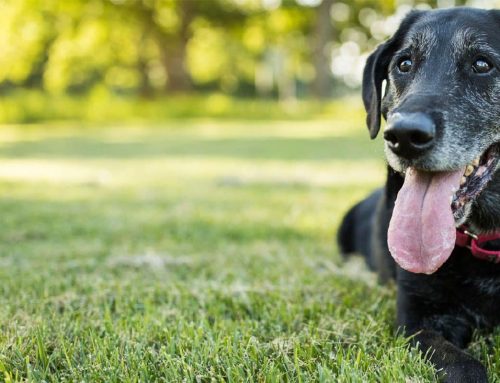You have a new puppy!!!
So you have an addition into your home, you have done the ‘puppy proofing’ and had lots of fun choosing the crate, bed, blanket, toys and other supplies he will need. You are excited that this little creature will bring lots of joy and fun. In return it’s your responsibility to contribute to your pet’s wellbeing and quality of life in providing good food, attention, clean environment and of course regular checkups at the vet.
De-sexing your puppy
Many veterinarians believe that de-sexing your puppy will solve the issues of pet overpopulation and make them friendlier and easier to play with. Spayed female dogs are generally calmer while castrated males are less likely to roam or urine-mark their territory and fight with other dogs. There are many other health benefits to de-sexing, e.g. lesser risk of cancers of the reproductive organs and the mammary glands in females, and reduction of risk of prostate and testicular cancers for males.
Spaying is the process in which the ovaries and uterus of female dog are removed at the age of around six months. It is a major surgery, performed under overall anaesthesia and may require an overnight stay at the veterinary clinic. Complications are rare and full recovery is expected within two weeks.
Castrating is another procedure which is also carried out under general anaesthesia. This involves removing the testicles of a male dog through an opening at the base of the scrotum. It usually takes place when puppy is about six months old with a small stay at veterinary clinic. The dog is fully recovered within seven to ten days.
Your puppy’s Basic Health Examination
Your newly born puppy should be taken for a regular check-up as soon as possible. The first check-up will generally include:
- A detailed physical check-up to determine his state of health.
- Examination for external parasites (bugs, ticks, parasites, ear mites).
- Examination for internal parasites (tapeworm, roundworm, etc.). Fresh stool sample maybe needed for analysis. Blood tests may also be required.
- Initial vaccination or discussion concerning your puppy’s vaccinations and when they should be scheduled.
- Discussion as to whether your puppy should be de-sexed and at what stage.
This first health check will give your veterinarian the information they need to advise you on your puppy’s immediate diet and care. Plus, it will give your vet a “knowledge base” from which, on subsequent checkups throughout your pup’s life, they can better evaluate, monitor and manage your pet’s health.
Make your puppy feel at home
Train and show your puppy the assigned spots where they can comfortably eat, sleep and go to the toilet. Give them time to adjust to the new home, new sounds and light in your environment. If small children are in the home, then make sure they are warned and taught that the new puppy is not a toy. They are living creatures and must be treated with care.
As your puppy reaches eight weeks old, he is able to learn specific lessons. Your puppy should be given obedience instruction the day you bring them home. Your veterinarian can advise you on the best training methods for your dog. Your puppy will find learning easy and fun, and with your guidance and positive reinforcement, they should remember what they learn.
Your Ageing Dog
Do you know that caring for your senior dog really begins when they are a puppy? Providing your dog from the start with good quality nourishment, regular exercise, scheduled veterinary appointments and a happy home environment will definitely give them a high quality of life in their later ages.
Nevertheless, as your dog gets old, much like humans, changes to the metabolism will happen. By paying regular attention to your dog’s behaviour you can easily detect problems.
What you can do at your home
- Keep a regular check on your dog’s mouth, eyes and ears. Watch carefully for loose teeth, redness, puffiness or discharge.
- Keep the sleeping area of your pet clean and warm.
- Groom your pet regularly so you will see any wounds or lumps and keep their coat healthy.
- Make sure fresh water is available at all times.
- Maintain a regime of proper nutrition, exercise and loving attention.
What is your dog’s age?
You can compare your dog’s age with human ages.
|
If your Dat is…
|
In human terms, that’s |
|
6 months
8 months 10 months 12 months 18 months 2 years 3 years 4 years 5 years 6 years 7 years 8 years 9 years 10 years 11 years 12 years 13 years 14 years 15 years 16 years |
10 years 13 years 14 years 15 years 20 years 23 years 26 years 32 years 36 years 40 years 44 years 48 years 52 years 56 years 60 years 64 years 68 years 72 years 76 years 80 years |
Most Common Problems in dogs
Obesity:
Your dog will become less active as he ages, so modifications to the diet will be essential to ensure your dog stays within a healthy weight range. A reduction in caloric intake will ultimately lessen the pressure and burden on joints, and minimise your dog’s risk of heart failure, kidney or liver infections and any other gastric problems. The new diet should include fibre, fatty acids and vitamins and reduced levels of sodium, protein and fat.
Arthritis:
Severity can range from slight stiffness to debilitation. An exercise program, also to maintain muscle tone and mass, can be adjusted to their condition. Anti-inflammatory medication prescribed by your vet can also help with pain relief.
Intolerable hot and cold temperatures:
These may bother your dog because he produces fewer hormones to regulate normal body temperature. Move your pet’s bed close to a heater or keep him indoors during the winter.
Tooth loss or decay:
This not only makes it harder to chew but also increases the likelihood of infection. Regular brushing and cleaning the teeth will help in preventing dental problems.
Prostate enlargement or Mammary Gland Cancers:
These are most commonly diagnosed in dogs that have not been de-sexed. Take your pets for regular prostate or mammary glands checkups.
Separation Anxiety:
This is natural and happens when dogs are unable to handle their stress level when their owner leaves them for any length of time. Signs include aggressive behaviour, noise phobia, increased barking and whining or restless sleep. Medication combined with behaviour modification techniques are keys to solving this problem.
Skin or coat problems:
Skin loses elasticity with age, making your pet more vulnerable to injury while their fur becomes thinner and duller over time. Regular grooming with fatty acid supplements is highly recommended in this case.
Canine Cognitive Dysfunction: It manifests itself in confusion, disorientation or decreased activity. Medication can help solve some of these issues.




